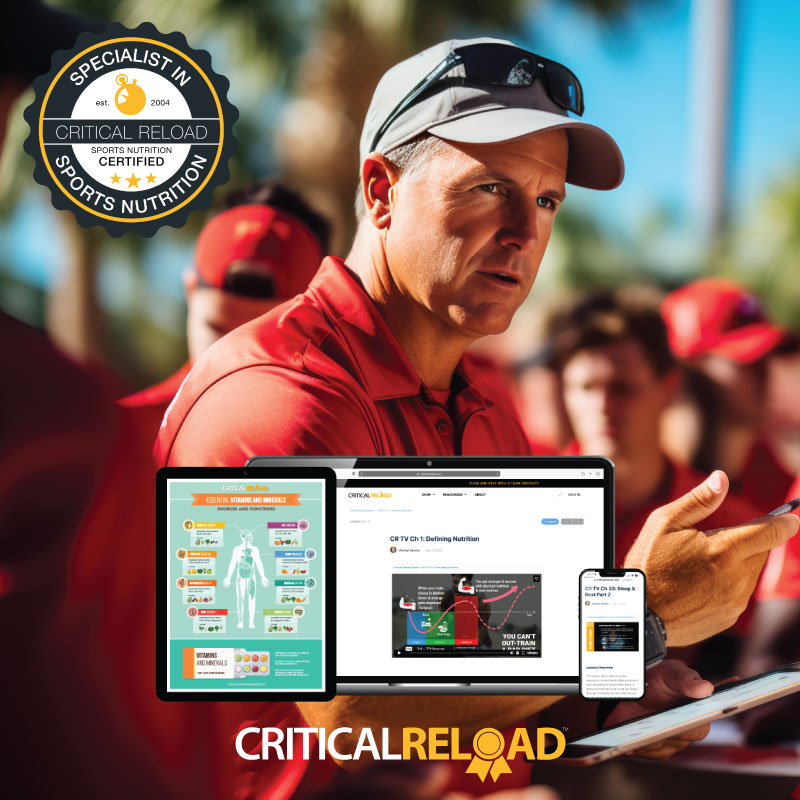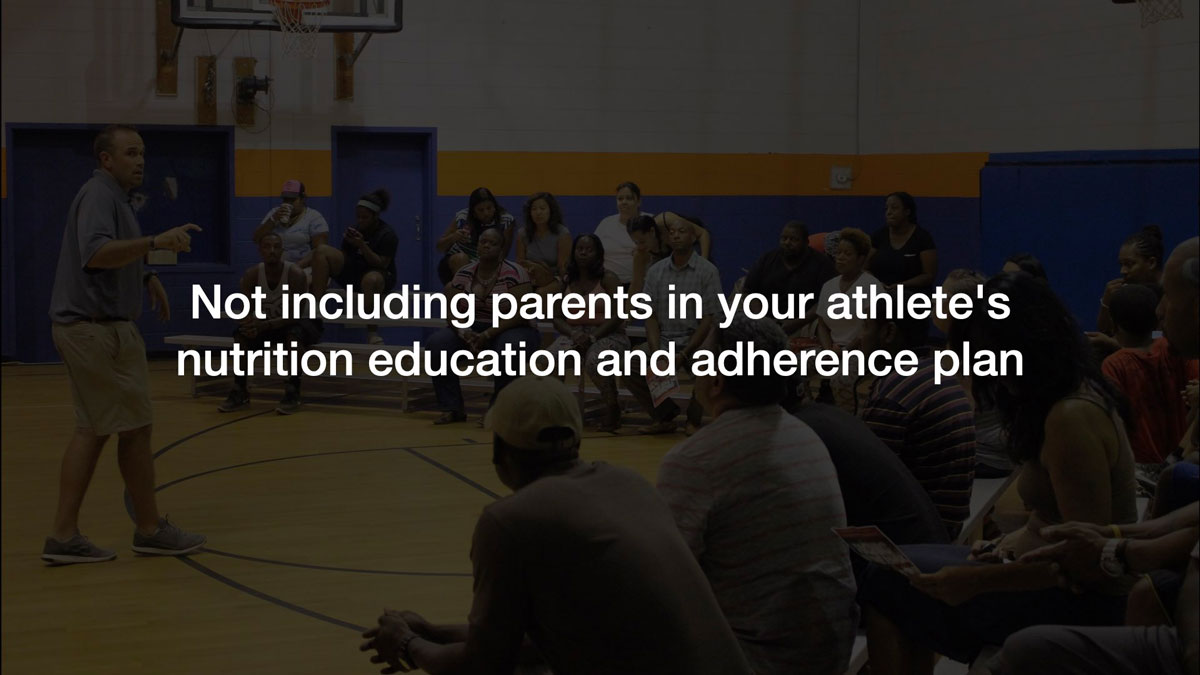Welcome to Part 5, The Top 5 Coaching Mistakes Undermining Athlete Nutrition. You can catch up here if you missed Part 4, where we highlighted that effective strength training begins with foundational movements and progresses to advanced techniques. Therefore, effective nutrition education should start with simple, basic insights and build on those foundations.
Even when you, as a coach, deliver compelling nutritional insights and your athletes understand and embrace these concepts, parents still buy groceries, stock the cupboards, and prepare meals. Not including parents in your quest for athletes’ better health, performance, and recovery via nutrition will limit any success. Expanding on this statement:
- Key Decision Makers: Parents play a crucial role in an athlete’s dietary habits because they are the primary decision-makers when it comes to purchasing food and preparing meals. They control what foods are available at home, and their understanding and support of nutritional principles are vital for consistent and effective implementation.
- Bridging the Gap: Even if athletes are educated about optimal nutrition, their ability to apply this knowledge is constrained by what is available to them at home. If parents are not informed or do not understand the importance of certain dietary choices, there can be a disconnect between what athletes learn and what they can actually practice. Bridging this gap by including parents in nutrition education ensures that the home environment supports the athlete’s nutritional goals.
- Creating a Supportive Environment: For young athletes, having a supportive environment is crucial for developing and maintaining healthy habits. Parents who are educated about nutrition can reinforce the messages delivered by coaches and help create a home environment that encourages and sustains healthy eating practices. This support can significantly enhance the athlete’s ability to adhere to nutritional guidelines.
- Consistency and Reinforcement: Consistent messages from coaches and parents about the importance of nutrition help reinforce good habits. When parents understand and support the nutritional strategies coaches recommend, athletes receive a unified message about the importance of nutrition for their performance, health, and recovery. This consistency is essential for long-term adherence and success.
- Practical Implementation: Including parents in nutrition education provides them with practical tools and strategies to implement at home. They can learn how to make healthier grocery choices, prepare balanced meals, and create meal plans that align with the athlete’s needs. This practical support ensures that athletes have access to the right foods and can apply the nutritional concepts they have learned.
- Family Health Benefits: Educating parents about nutrition benefits the athlete and can improve the health and wellness of the entire family. Parents who adopt healthier eating habits can set a positive example for all their children, leading to a healthier lifestyle for the whole family. This holistic approach to family health can create a more sustainable and supportive environment for the athlete.
- Empowerment and Engagement: When parents are included in the education process, they feel more empowered and engaged in their child’s athletic development. This involvement fosters a partnership between the coach, the athlete, and the parents, leading to better communication, understanding, and collaboration. Parents engaged in their child’s nutritional education are more likely to support and encourage their child’s efforts.
- Long-Term Success: The ultimate goal of nutrition education is to instill lifelong healthy eating habits. Including parents in this education ensures that these habits are supported and reinforced at home, increasing the likelihood of long-term success. Athletes who grow up in an environment that values and prioritizes nutrition are more likely to maintain these habits into adulthood.

Incorporating parents into the nutrition education process is essential for achieving the desired outcomes of improved health, performance, and recovery for athletes. Programs like the Critical Reload Edge Specialist in Sports Nutrition Certification can facilitate this by providing comprehensive resources and strategies for involving parents. This certification equips professionals with the tools to:
- Educate and Inform Parents: Offering workshops, seminars, and informational resources specifically designed for parents to help them understand the importance of nutrition and how they can support their child’s dietary needs.
- Provide Practical Guidance: Supplying practical tips, meal plans, and grocery lists that parents can use to make healthier choices at home, ensuring that the athlete’s nutritional needs are met.
- Foster Collaboration: Creating opportunities for coaches, athletes, and parents to collaborate and communicate about nutrition, ensuring everyone is on the same page and working towards the same goals.
- Empower Athletes and Parents: Empowering both athletes and parents with the knowledge and skills they need to make informed decisions about nutrition, leading to better outcomes for everyone involved.
In conclusion, the involvement of parents in an athlete’s nutrition education is critical for the success of any dietary program. By ensuring that parents are informed, engaged, and supportive, coaches can create a comprehensive and effective approach to nutrition that enhances the health, performance, and recovery of their athletes.
Continue this series with a REDUX, where we’ll mark how hiring a nutritionist as a guest speaker to emphasize the importance of nutrition to athletes while believing that a single instance will make a difference is a common yet flawed approach. Be sure to catch it!
